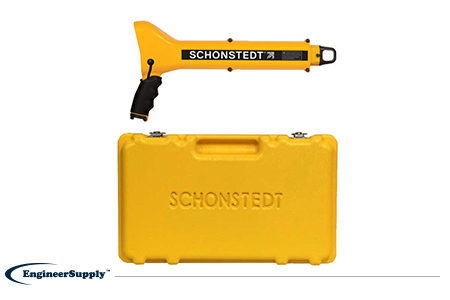Essentials tools for Engineers

5 Tools Every Engineer Needs To Have Handy
The field of engineering is often treated as a single homogenous profession, when in fact, there are many types of engineers who do vastly different kinds of work. All engineers are united by one characteristic, though — the need for high-quality professional instruments. Indeed, investing in the right
engineer tools is imperative if you want to see reliable results from your work. The following five selections are some of the most indispensable engineering and
survey supplies you should always keep at arm’s length.
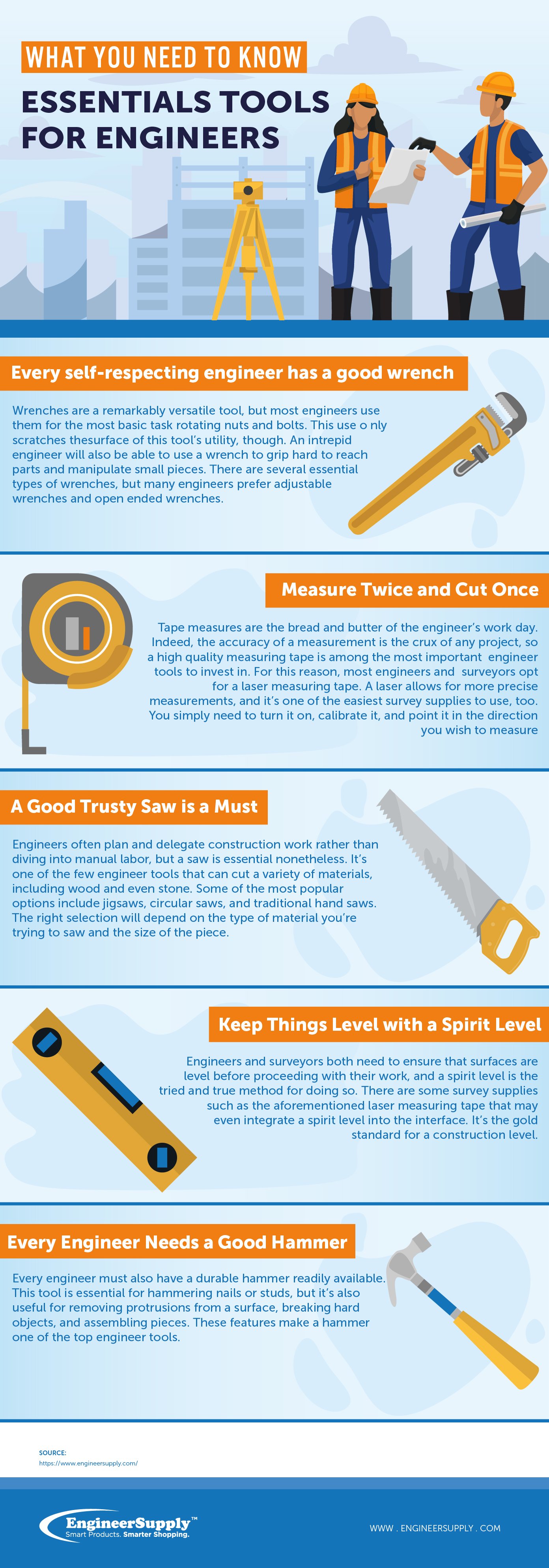
1. Every Self-respecting Engineer Has a Good Wrench
Wrenches are a remarkably versatile tool, but most engineers use them for the most basic task — rotating nuts and bolts. This use only scratches the surface of this tool’s utility, though. An intrepid engineer will also be able to use a wrench to grip hard-to-reach parts and manipulate small pieces. There are several essential types of wrenches, but many engineers prefer adjustable wrenches and open-ended wrenches.
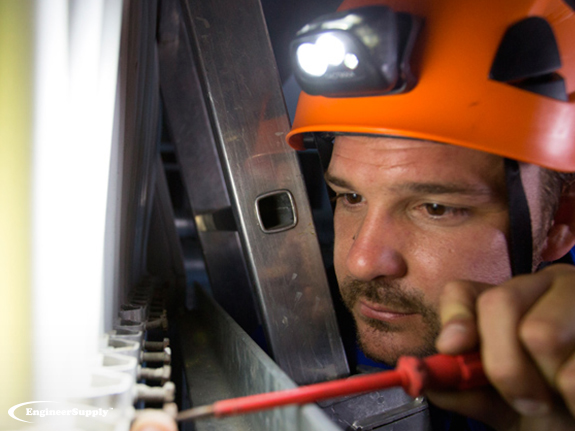
2. Measure Twice and Cut Once
Tape measures are the bread and butter of the engineer’s work day. Indeed, the accuracy of a measurement is the crux of any project, so a high-quality measuring tape is among the most important
engineer tools to invest in. For this reason, most engineers and surveyors opt for a laser measuring tape. A laser allows for more precise measurements, and it’s one of the easiest
survey supplies to use, too. You simply need to turn it on, calibrate it, and point it in the direction you wish to measure.
3. A Good Trusty Saw Is a Must
Engineers often plan and delegate construction work rather than diving into manual labor, but a saw is essential nonetheless. It’s one of the few
engineer tools that can cut a variety of materials, including wood and even stone. Some of the most popular options include jigsaws, circular saws, and traditional hand saws. The right selection will depend on the type of material you’re trying to saw and the size of the piece.
4. Keep Things Level With a Spirit Level
Engineers and surveyors both need to ensure that surfaces are level before proceeding with their work, and a spirit level is the tried-and-true method for doing so. There are some
survey supplies — such as the aforementioned laser measuring tape — that may even integrate a spirit level into the interface. It’s the gold standard for a
construction level.
5. Every Engineer Needs a Good Hammer
Every engineer must also have a durable hammer readily available. This tool is essential for hammering nails or studs, but it’s also useful for removing protrusions from a surface, breaking hard objects, and assembling pieces. These features make a hammer one of the top
engineer tools.

Frequently Asked Questions
Are survey supplies and engineer supplies the same?
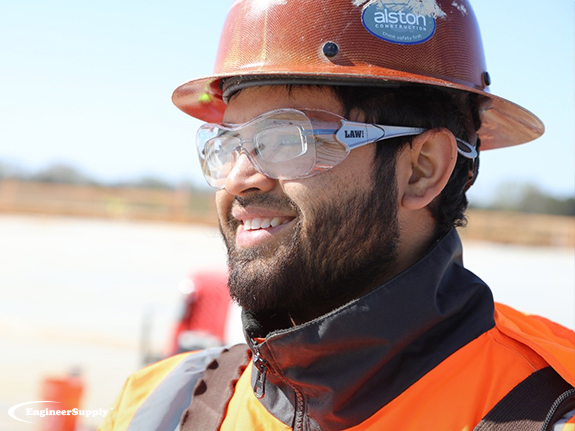
Survey supplies and tools for engineering aren’t exactly the same, but there is a lot of overlap between the two categories. Engineers and surveyors both use measuring tapes, spirit levels, wrenches, saws, and a variety of other tools. Some tools, though — such as magnetic locators and survey markers — are usually only used by surveyors.
What tool does an engineer use most frequently?
Engineers use a wide variety of tools throughout the day, and different kinds of engineers will use different tools most frequently. Any engineer, though, will rely on a tape measure often as they complete their daily tasks.
Is a construction level different than a regular level?
The phrase “
construction level” is sometimes used interchangeably with the phrase “spirit level,” and indeed, spirit levels are seen as the gold standard on a construction site. Generally, though, a construction level is simply manufactured with higher standards of accuracy.
What other kinds of tools does an engineer need for work?
Some other tools that engineers use frequently include pliers, personal protective equipment such as goggles, chisels, and metal files.
How can I ensure I find the most accurate engineer tools available?
Accuracy is, by far, the most important quality to look for when you’re shopping for
engineer tools. To ensure that you find the best selections, you should shop at a retailer that’s dedicated to supplies for surveying and engineering. Products sold on a site like this will be from reputable brands.
Shop for an Engineer’s Construction Level and More
Whether you’re looking for a
Gammon reel or an
electronic construction level, you’ll find the best prices and variety at Engineer Supply. We know what engineers, surveyors, and construction professionals need. For more information, call (800) 591-8907 or shop online.
Best Survey Equipment
Magnetic Locators
If you’re looking for lot lines in an urban or suburban area, there are likely already surveying stakes in the corners of every lot. It’s important to mark your own lines to verify accuracy, but a convenient place to start is with the existing surveying stakes.
A magnetic locator helps you find these stakes. Simply turn on the locator and work your way around the area where a stake is likely buried. These locators detect magnetic signals from buried metal items, so they’ll find a number of other items in addition to surveying stakes. Once you find a metallic object, dig it out to verify it’s a stake.
One of the most convenient, practical locators is the
Schonstedt GA-52Cx. This basic model is highly reliable, but doesn’t have all the programmable settings of other locators. Use it to find metallic objects with highly sensitive location technology and a rugged, weather-resistant control panel.
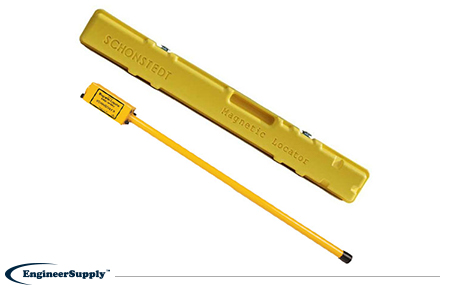
The
Pipehorn 800HL detector is one of the most versatile options for locating buried objects. This dual-frequency detector works as both a pipe and cable locator. Connect the transmitter to a buried line to follow an electric, water or gas line buried in the ground. Once you locate and flag these buried lines, switch modes to sweep for unmarked utilities with the tracer wire and tape.
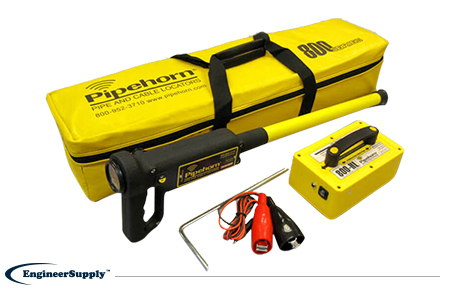
A more portable, high-tech Schonstedt magnetic locator option is the
GA-92XTd. This model uses a compact design and versatile control panel for both audio and visual indication. The small size doesn’t mean less power, so you can use this locator to find ferrous items buried up to 16 feet underground. Pack it away in the small, durable case to keep in your truck or toolbag wherever you work.
